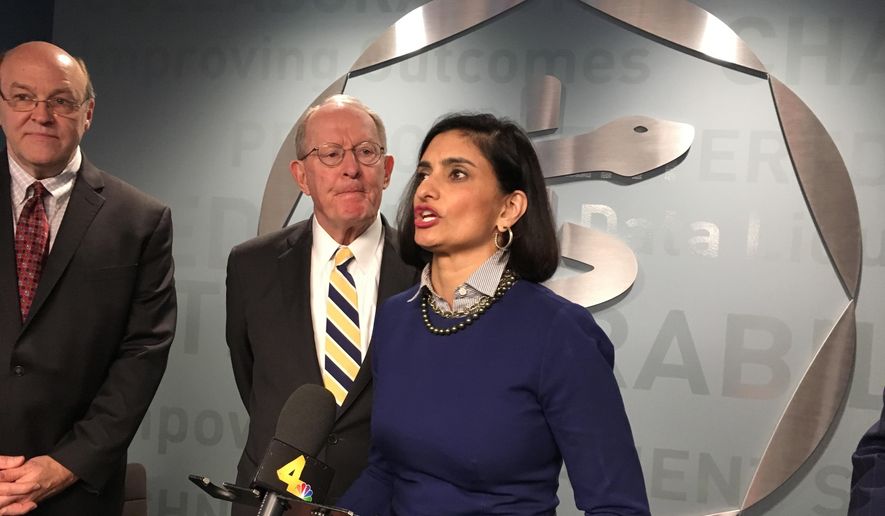NASHVILLE, Tenn. (AP) - The federal Medicaid leader on Thursday declined to say whether imposing work requirements on certain beneficiaries is better suited for states that expanded Medicaid than those that didn’t, saying her agency is assessing state proposals on a case-by-case basis.
Centers for Medicare and Medicaid Services Administrator Seema Verma told reporters the program is about helping people rise out of poverty.
President Donald Trump’s administration has approved work-requirement plans in Kentucky, Indiana and Arkansas, all Medicaid expansion states under former President Barack Obama’s Affordable Care Act.
Tennessee hasn’t expanded its Medicaid program, TennCare. But the Republican-led General Assembly is advancing a bill that seeks federal permission to require certain adult beneficiaries without children under 6 to work, volunteer or attend school.
“We’re going to be continuing to talk to states and look at their proposals and work with them because we think it’s important to help people rise out of poverty,” Verma said after touring the Center for Medical Interoperability in Nashville.
A legislative analysis estimates a net $34 million annual cost for the Tennessee proposal, which would rely on Temporary Assistance for Needy Families money.
Asked about costs for state programs, Verma said federal officials look at proposals from a “variety of lenses.”
“We are always looking at budget neutrality,” Verma said. “When a state puts a plan together, it has to be federally budget neutral and it has to also meet the objectives of the Medicaid program.”
Republican House Speaker Beth Harwell, a gubernatorial candidate in a crowded primary, is championing the legislation as a way to help people be independent. Republican Gov. Bill Haslam has said he’d sign the bill, which has passed the House.
This week, Haslam said he’s “relatively confident” that federal officials would approve Tennessee’s proposed program the way the bill is written. If the legislation passes, state officials will have to work up a much more detailed waiver to submit to the Trump administration.
Haslam, who previously backed a TennCare expansion proposal only to see it fail in the legislature, said that even though Tennessee didn’t expand coverage, it still ranks somewhere in the middle of states in terms of percentage of population covered by Medicaid.
Republican Senate Speaker Randy McNally has delayed the bill since last week, saying he wants more information from the Trump administration.
TennCare covers a limited group of about 1.4 million people, primarily low-income pregnant women, children up to age 21, the elderly and the disabled. About 86,400 able-bodied adults with dependent children older than 5 would have to work, though an estimated 49,300 of them already do, according to the legislative analysis.
The legislation says state officials should be “consistent” with federal guidelines on exemptions, which are based on age, disability, responsibility for a dependent, and participation in a drug or alcohol program. The Centers for Medicare and Medicaid Services suggest exempting caregivers or giving them work credit. The guidelines also list skills training, education, job search, volunteer service as work alternatives.
Most Democrats, the YWCA, Tennessee Disability Coalition, Prevent Child Abuse Tennessee and the Tennessee Justice Center say the Tennessee proposal could harm vulnerable patients at a huge cost to taxpayers.




Please read our comment policy before commenting.